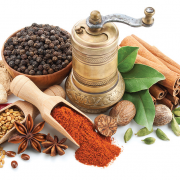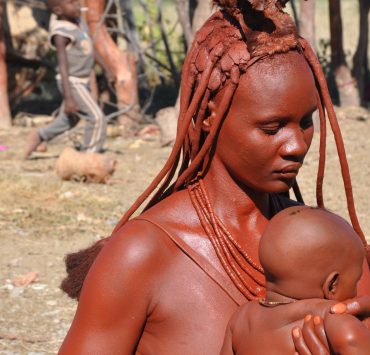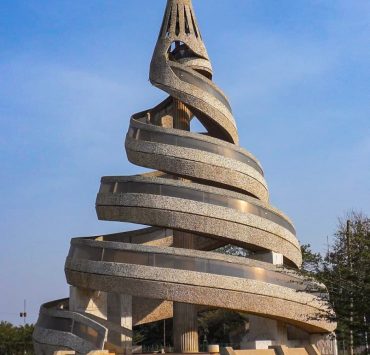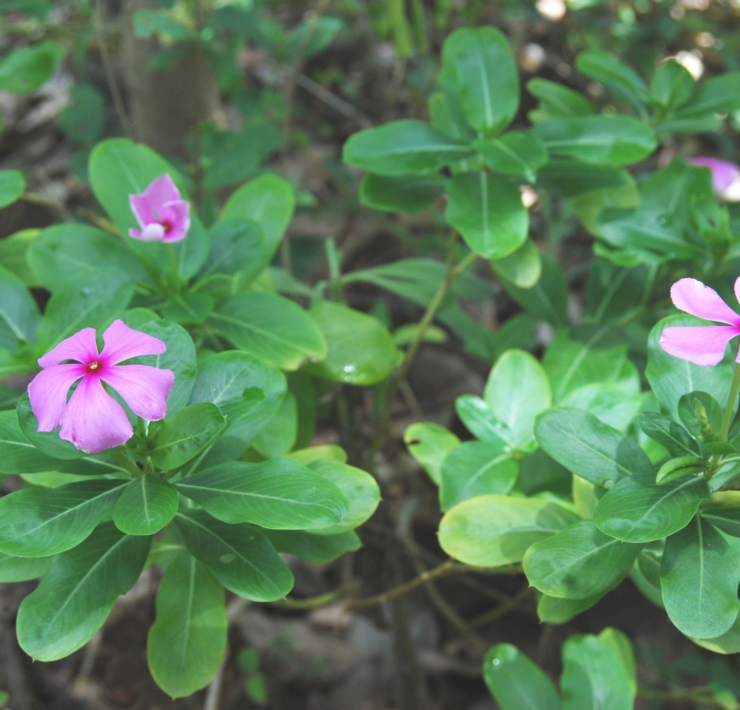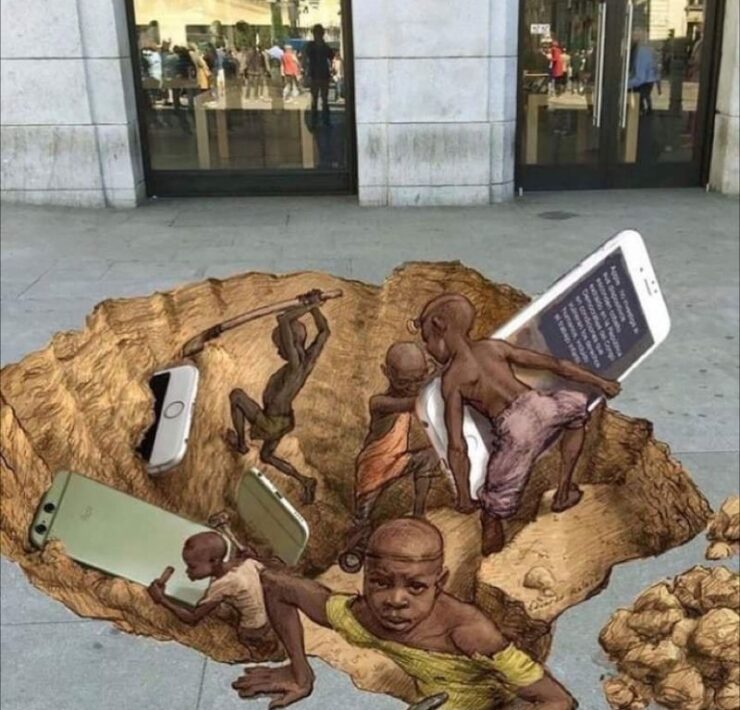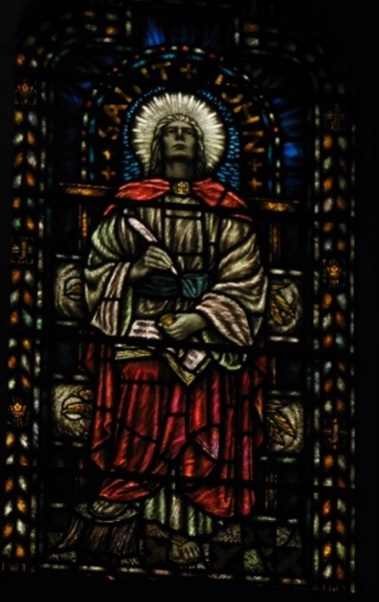ECONOMIC APARTHEID
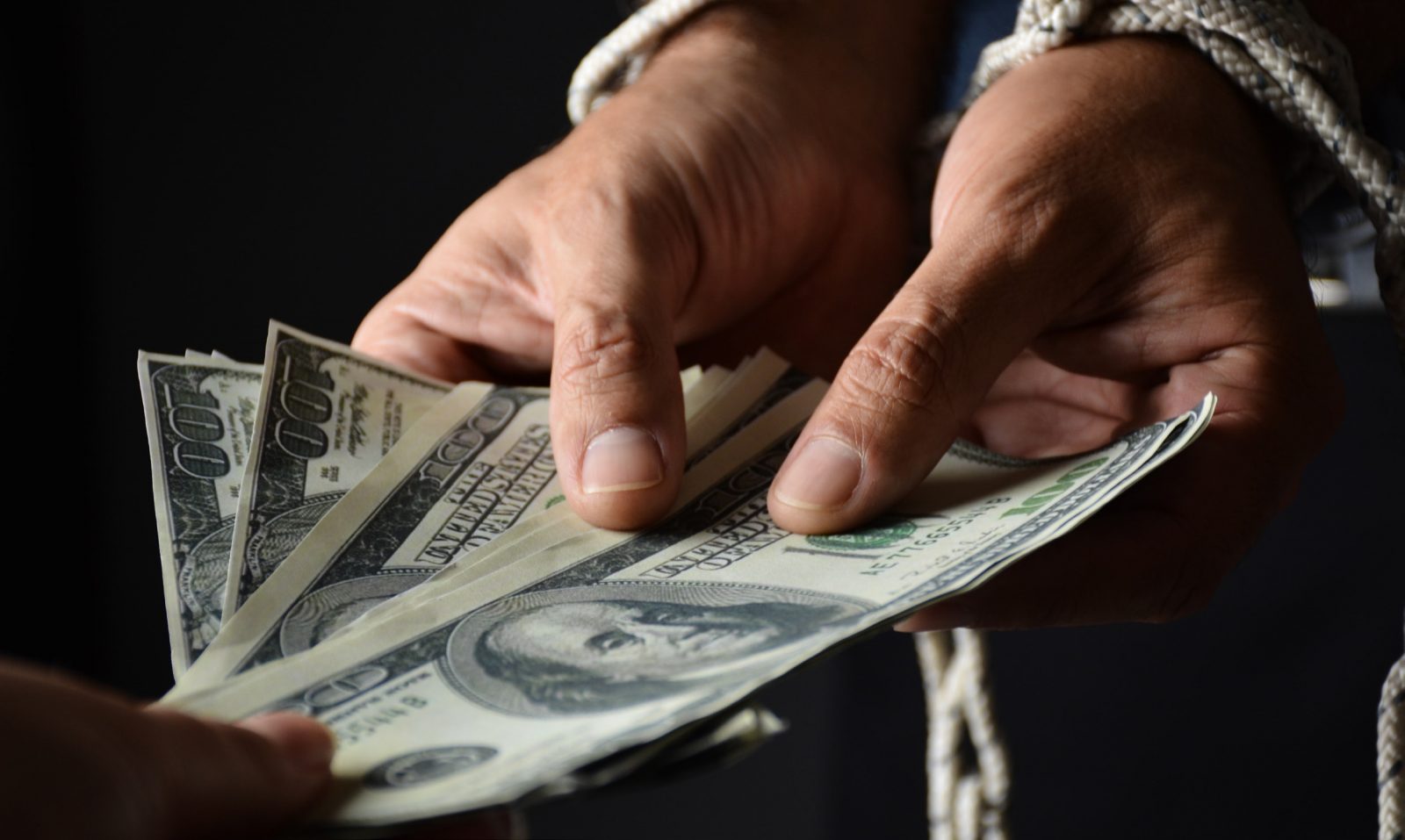
Chioma Phillips is the Editor of Msingi Afrika Magazine and…
ANY WAY FORWARD FOR AFRIKA?
At the time of this writing, the price of fuel in Marsabit town was KES 134.90 per liter, that’s about USD 1.35. This pricing was put in place after recent fuel price hikes by the Kenya government that yet again affect the different regions in the country disproportionately. The price of fuel in Nairobi was around KES 127.1 or about USD 1.27 per liter. It may not look like much, but that KES 7.8 or USD 0.078 difference between the country’s capital, and Marsabit County, which is situated to the north of the country, is a huge statement about the neglect that is suffered by citizens of one country at the hands of citizens of the same country, and the economic apartheid and neglect that takes place in Afrika that prevents regions such as Marsabit from thriving. That this neglect is the result of public policymaking makes it clear that there is a definite lack of understanding about the actual needs of the people across the country and of the country as a whole. Why do I say this? In a 2017 ranking of counties in Kenya by GDP, Nairobi County ranked first out of all 47 counties, whereas Marsabit County ranked 43rd. Nairobi’s rank is not surprising, as it houses most of the manufacturing and businesses in the country as well as national government and international NGO offices and important multinational private sector regional hubs. The illogic of central government policy implementation in Afrikan countries is often so focused on metrics imported from foreign nations and systems that it often fails to take into account what it takes for an entire Afrikan nation to thrive, let alone the continent as a whole.
You see, it’s easy for the policymakers to say to themselves that the average salary for someone in Marsabit is lower than that of someone in Nairobi, because the rent in the capital is higher than that of Marsabit, or some such thing. Or that Marsabit, as a County, is not as industrialized as the capital and therefore is not producing as much and doesn’t need as much in terms of resources. However, that in itself is a problematic perspective. It condemns a low-income county to remain under-developed due to a lack of resources that would help it grow. In so-doing, it condemns them to a standard of living that is undesirable because a decision has been made to keep them that way.
Consider this in contrast to what John Perkins reports of the Saudi approach to the dignity of its citizens. They made a decision as far back as early 70’s that their people would not be confined to carrying out menial tasks such as the collection of trash. They leave that to others. And when you examine the way they operate even today, hiring manual laborers from Afrika who they treat just like slaves, you can see that the mindset of the Saudi is that they are fit for more ‘noble’ pursuits than those they put their workers to. Meanwhile, Afrikan governments appease the Saudis for the Saudi’s own mistreatment of the Afrikan people, which tells you the value that Afrikan governments have for their people. As does their treatment of the inhabitants of Marsabit County.
Let’s look at an example of the effects of fuel prices on the county. A person who fuels their car in Nairobi with roughly ten dollars of fuel will get about 7.87 liters, while in Marsabit County, one would get 7.4 liters. So, in a car that’s giving about 10 kilometers per liter, the one who fuels in Nairobi can expect to get 78 kilometers out of their vehicle while the person fueling in Marsabit will get about 74 kilometers. Again, it doesn’t seem like much, but when the closest petrol station to Marsabit town is 224 kilometers away, every little bit counts. By contrast, Nairobi County is filled to the brim with petrol stations. Indeed, the person running a public transport business in Marsabit County, whose vehicles travel thousands of kilometers in a week will tell you the difference that that 7.8 shillings makes to his costs and the fares that he charges – as will his passengers. And, when one considers that about 45% of that fuel price goes to the government in taxes and levies, it’s even more disheartening.
A county such as Marsabit, indeed, all counties in the north of Kenya, have largely been neglected by the central government and have had to rely on representatives from their regions to speak for and fight for them in parliament or the senate in an environment that just seems not to ‘see’ them. This failure to ‘see’ our brothers and sisters and therefore to neglect them and their many needs which have resulted from this neglect, has historical roots in, you guessed it, Colonialism: “The genesis of the injustices of the people living in what the colonialist termed the Northern Frontier Districts (NFD) and later christened North Eastern Province (NEP) by the Post-colonial government was in the attitudes of the colonialists and later the post-colonial rulers.
Both the colonial and post-colonial governments came to view the inhabitants of this region as stubborn and indifferent. This indifference (in itself an observer’s description and therefore likely to be biased) gave rise to conflict between the state and the communities in this region. The conflict manifested in the form of exclusion, partisan administration or systems and a manipulation of populations to serve interests of the state and state functionaries. Such was the state of affairs not only in the Kenyatta and Moi regimes but also in the current one.” These words are taken from a policy paper titled, “Historical Injustices a Complementary Indicator for Distributing the Equalization Fund”, written during Kibaki’s presidency. It goes on to say, “The colonial government in Kenya, in an effort to control the movement of the peoples of Northern Kenya into the hinterland of East Africa and of their integration with others in Kenya, enacted several legislations specifically targeting NFD.
The first was the Outlying District Ordinance 1902, which applied exclusively to NFD. The effect of the Ordinance was to declare NFD a closed area. Movement in and out of the area was restricted and only under a special pass. The second was the Special Districts (Administration) Ordinance, 1934, which together with the Stock Theft and Produce Ordinance (1933), gave the colonial administrators in the region extensive powers of arrest, restraint, detention and seizure of properties of “hostile tribes”. The definition of what constitutes a hostile tribe was left to the Provincial Administration to determine.” The document also states, “Further, the Stock Theft and Produce Ordinance legalised collective punishment of tribes and clans for the offence of their member once that tribe was declared “a hostile tribe” by the Provincial Commissioner.”
I want you to imagine with me, for a moment, what an already hostile colonial administration was like in its dealings with the communities that lived in these regions. Regions that they had ostracized and created psychological biases against in the minds of the rest of the Afrikans living in colonial Kenya, such that when each successive regime took power, they continued to enforce these apartheid policies in order to ‘control’ their fellow countrymen.
The final section I will extract for you to read is this: “The net effect of these early colonial legislations was to turn NFD into a closed zone, which had no contact or relation with the other parts of Kenya. Indeed, the other Kenyans did not know much about NFD. This situation continued even after independence and is best captured by the statement of the American writer, Negley Farson, that, “there is one half of Kenya about which the other half knows nothing about and seems to care even less”.” If this does not scream to you, “Apartheid”, I don’t know what will. If we, therefore, do not stop to consider what the state of Marsabit is now, without looking first at the historical injustices of what was perpetrated against those who were termed ‘stubborn and indifferent’ or worse still, ‘hostile’ and realize that actually they continue to be punished by a colonizer who has long left our country (or so they say) – then we miss the reality of what is actually going on not only in Marsabit, but all across Afrika. It is true what the authors of the document and what Farson says about other Kenyans not knowing much about ‘NFD’.
Many stereotypes exist that are difficult to overcome in the minds of those who do not take the time to deliberately find out the truth for themselves. Even for me, an understanding about the truth of how beautiful Marsabit is came only in my early 40s, when I first traveled to the county with my husband. Can you imagine over 4 decades going by before you find out the truth for yourself about a place or a situation or a thing? Isn’t that what is happening with many who are choosing to look at the continent and people of Afrika from a new lens of compassion and understanding that we have been lied to for the better part of our existence? Once your eyes have been opened, Wisdom demands that you examine everything else you have believed about Afrika, the world and the way things work.
That the individual is immediately affected by the choices that are made by central government is evident. In the case of fuel, for areas like Marsabit who transport the majority of their food from other regions in Kenya and Ethiopia, food prices go up, the cost of travel goes up, the cost of electricity goes up, the cost of water goes up, the cost of production of goods goes up… in short, the cost of living goes up, instantly. In Marsabit, some shops simply stop stocking certain items, because they are too expensive, this results in a scarcity that was created by an ignorant and unfair policy and policymaker who never bothered to visit a county like Marsabit to find out what is really happening on the ground. It gets worse still when you consider that the fuel price increases are because of pressure from the International Monetary Fund, because of a loan that the Kenya government took that its citizens vigorously protested against and did not want. So, not only is this economic apartheid effect not localized to Marsabit or the counties of northern Kenya or others suffering like them. Rather, it is an effect that is based on an international push from those who want to control the growth trajectory of every nation on earth.
Once you understand this, you will then understand that instead of wanting communities like the ones in Marsabit to thrive, institutions like the IMF and World Bank are sitting in a boat, while Afrika is in the water and they are busy pushing Afrika’s head underwater and waiting for her to drown, or be so utterly broken that her ‘stubbornness, indifference and hostility’ will transform into meek compliance to all their dictates, without question. A heartless reality for Afrika to face – an eye-opener when you see what the effect is in a region such as Marsabit, where our girls still go to the bush to squat in holes during the time of their monthly period. So, while the daughters of those in countries in the west or east have their pick of a wide range of products, or many of the girls in Nairobi pop into the supermarket to pick up a pack of something – their sisters in Marsabit squat and those in Nairobi’s slums prostitute themselves in order to be able to afford a pack of sanitary towels – and all this happens right under the government’s nose.
Economic apartheid’s trickledown effects.
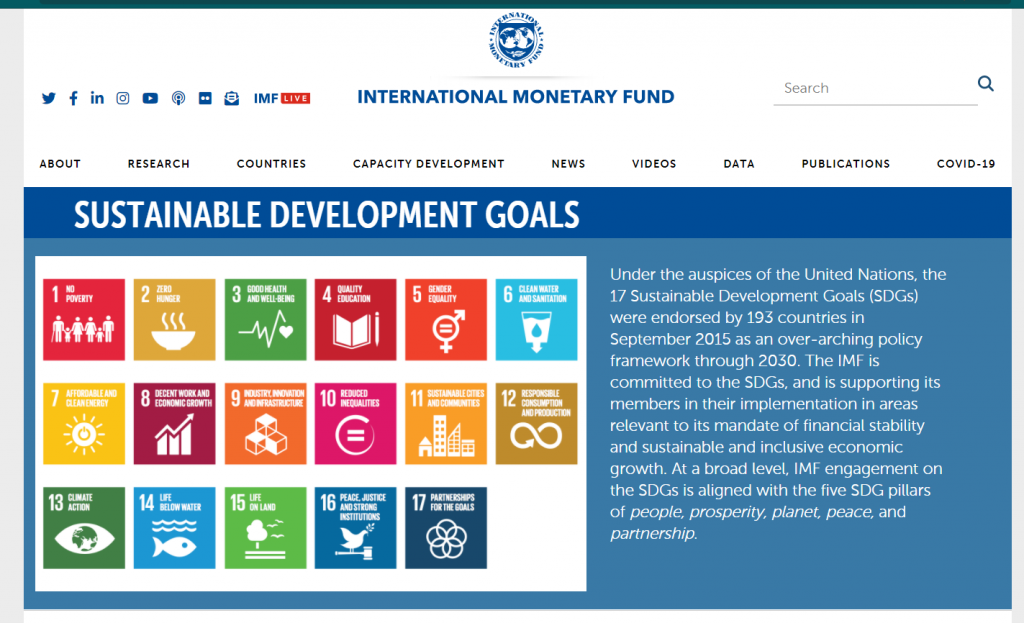
The IMF won’t consider that the cost of a pineapple in Marsabit is one dollar, but in Kajiado County (ranked 20 places above Marsabit in the list I mentioned earlier) is fifty US cents and what that means to the health of the citizens of Marsabit, who cannot affordably access the potassium, bromate and vitamins in this fruit. This seems to work in direct contradiction to the IMF’s claims to be in support of the UN’s Sustainable Development Goals, one of which is to do with health. How would causing immense economic pressure on a county such as Marsabit, in Kenya, help people overcome poverty or become healthy and live peacefully? In fact, if my reading of Wario Mulicha’s article in The Elephant on ‘The Politics of Violence in Marsabit County’ is correct, the solution to the conflicts which Marsabit faces could be the equitable allocation of resources. This sounds, to me, like the solution to many of the problems facing Afrika as well. Which means then that there is no ‘one size fits all’ economic policy that the central government of Kenya can make in order to meet the needs of its citizens across the country. Or that the IMF and the World Bank can force down our throats. It also means that a different approach, based on ‘seeing’ each other and recognizing that we are in this ‘boat’ together is needed and urgently. Which makes one wonder at the implementation of the fuel price increases in the manner in which they have been done. There has been talk that the current president has restrained his hand on at least two occasions that I am aware of and has held back from increasing prices. That is commendable, however, perhaps finally putting his foot down and doing for the country what the country needs would be the ideal way to go. The same goes for every other head of state or government in Afrika.
But, let me tell you how I ended up here, reflecting on the issue of economic apartheid and its national and international roots and effects on Afrika’s ability to thrive. The other day, I was transcribing an interview we did on Msingi Afrika TV with Marcel Kwedi the CEO of WOHAOO S.A.R.L. on a new cryptocurrency for Afrika that is designed specifically for her. I was typing away when something he said in the interview suddenly jumped out at me. During our interview, our internet connection had gone down for a few minutes and when it was restored, he explained that such a thing never happened to him in the five years he spent in Amsterdam. Neither internet, nor electricity would go down because the companies felt a responsibility to supply a reliable service to their customers. But that in Afrika, the mobile companies, many of which are owned by former imperial colonizers of Afrika, provide a service that is sub-par and that they don’t feel a responsibility towards their customers. This little domino he uttered triggered an effect in my mind that connected to many other pieces
I had been considering over time.
For example, I was working on a new website that we are hoping to launch soon, and our internet kept disconnecting and reconnecting, as did our electricity. For this reason, for every action I took on the website, I had to wait at least three minutes before it was accomplished. I have had better speeds, even in my current location, where one click yields a result in a second or two. This time I was waiting 180 seconds before a single task was accomplished for just one aspect of that website and I needed to perform this action a minimum of 91 times before all the tasks were completed. If I have calculated this correctly, that’s almost five hours to complete a task that in Amsterdam would probably take less than 2 minutes to do. Also, our network interruptions during our interview – and others that we have experienced – mean that we are not currently able to stream live interviews to our audiences as would be our preference. Instead, we have to record, spend hours editing, then upload (using double the amount of data we would have used) in order to share. It is a limitation that we have come to tolerate in Afrika as being ‘one of the hurdles’ we have to deal with – but it is not a limitation that others in the west face. Think about that.
Another thing Marcel said was that we imported the use of asphalt roads to our countries in Afrika, where the weather does not support their longevity. It’s too hot. So, they break down frequently and have to be repaired. Think about how much money your country has invested in its asphalt road network and how much time they spend fixing it. That’s two steps forward, six steps back. Or, in other words, it is the illusion of progress. It’s the mom who is keeping the children distracted, while she gets done what she needs to get done in the house. It’s the west and the east keeping Afrika occupied with the notion that development means schools, roads and hospitals, while in reality working behind the scenes to change the standards of education to exclude our graduates, erode health through agricultural and pharmaceutical means and provide infrastructure that will break down very soon and leave the continent using for repairs money that was intended for growth. It’s China giving Kenya an old train (based on the comments of one Chinese passenger that my husband and I overheard while traveling to Mombasa some time back) while they have advanced trains and not only that, are now working on one insanely fast high-speed train. It is economic apartheid. It is the thing that says to Afrika, ‘Go ahead and live in the shanty towns while we build an ultramodern city for ourselves.’ or ‘Yes, we can help you get to where we are but we don’t want to. We prefer to write reports that talks about ‘too many are left behind’ so that we can justify the loans we convince you to take, that leave you enmired in debt for generations.’ or ‘We prefer to tell you only what we want you to know to keep you running on the treadmill that furthers our own agendas.’ Or the multinational that ‘finally’ hires an Afrikan from the country they are based in as CEO or MD, only to use them to push insanely unfriendly policies or products onto the market, while calling it an achievement.
If you have ever gone online and clicked on a link to watch a video and received the message, “This video is not available in your region.” Or if you have ever wanted to receive money via a payment service and received the message, “This service is not available in your region.” Of if you have ever wanted to use a social media platform and received the message, “Access is not allowed in your region.” Or if you have wanted to purchase an item and been told, “We do not ship to your country” Whether it was for fun and entertainment, or something critical that you needed, the fact that you were blocked from accessing any of these things means that you have been prevented from participating in an activity or a process that hundreds of millions of people in the west, or east can participate in without a second thought. An activity or a process that would have allowed you to improve your understanding about a matter, increase your performance, empower your ability to create or innovate, facilitated a payment for something that was needed urgently. That is apartheid, and it is taking place on a global scale against the continent of Afrika and others like it. And the problem demands more than a VPN as a solution… in fact, you will find that certain sites have found ways to detect you when you are using one.
As I shared my thoughts with my husband, I told him that all of these things are like a lady who is wearing a long flowing dress and having her hem stepped on by someone with a big boot as she is trying to move forward. She can’t go anywhere without either tearing her dress, risking her entire garment being destroyed or ripped off, or engaging in some form of confrontation with the bully. All of which would be needless if the world was really a fair place and played by the rules that it says everyone else should play by.
If it seems too insidious for you to consider that the level of hindrance by the west and the east against Afrika actually goes to these extremes, then ask yourself why we have millions of graduates at undergrad, master’s and PhD level and nothing seems to be moving for Afrika, if, indeed, everyone in the world is playing by the same rules. Ask yourself why it seems that those who should be very logical men and women, who are meant to be representing you in public office and working in government offices for your benefit and the facilitation of your sustained growth, seem to always make decisions that work against your welfare. Taxing you more at a time when they have restricted the very economic activity and human interaction that would spark innovation and production. Increasing prices of basic goods and fuel at a time when it is obvious that people do not really have enough money to spend. Doing so because their lenders told them to, despite them having the intel to back an alternate choice of action.
In Kenya, the economy of the country enjoyed an upward swing during President Mwai Kibaki’s tenure. At this point in the nation’s history, Kibaki streamlined revenue collection, made available tools like computers at affordable rates by eliminating duty, reduced external borrowing and started to convince people that self-sufficiency was actually possible, that the matatu industry could be regulated, that the environment could be clean and free from pollution. Small businesses felt the positive effects of the policies that his regime was enacting and even speak about it to this day, nostalgically. To hear them you wouldn’t know that it was barely 10 years ago that these policies were in place. Which should tell you what life is like currently for these small businesses, which are the engines of real growth for any economy. Sadly, they barely receive what they truly need in order to thrive; an environment that is conducive for experimentation, exploration and growth. Kenya, after Kibaki, has had to endure increasing external debt and corruption leading to theft of billions of shillings on a regular basis and the inability or refusal by those in charge to deal with the ones perpetrating these crimes (this is not to say that previous regimes had clean hands). Greater taxation and costs of necessities like fuel and electricity, which are necessary for manufacturing, have been the citizens’ reward. So, how will the country develop? How will Afrika grow and thrive if the tools to do so are kept one inch from our grasp?
A world where ladders become slippery snakes
I use Kenya as an example to illustrate to you what is going on in Afrikan countries as a whole. For, if you look closely at the case of Marsabit County vs. Nairobi City County, you will see that this is an accurate microcosm that is representative of what is really going on in Afrika vs. the west and east. A country in Afrika will begin to gain traction e.g., Malawi under Mutharika in the area of agriculture, and shortly after they gain traction, they will face an occurrence that will erode most, if not all, of the gains that were made, causing them to slide down to the bottom of the pit yet again. Like a massive game of snakes and ladders, where the rules were created to disfavor our people. Skewed to grant access and ‘success’ to those who agree to the rules that have been set… although, truth be said, even for those who comply, safety is not assured. If the gamemaster has a change of heart, they too will go sliding down the largest, most slippery snake, to the pit of obscurity and shame, or worse. So, we must live aware that it is real and it is happening.
We must realize and understand that the case of Marsabit’s isolation and socio-economic apartheid is actually precisely what is going on in Afrika.
Kenya is experiencing the same apartheid from the people, countries and organizations that it seeks to please, in order to negotiate and win or to retain terms of trade or credit that are relatively more favorable than those which other nations, even in Afrika, are getting. However, the price it pays in the terms and conditions attached are so high that any gains it may perceive it has attained, are actually overshadowed by the punitive requirements that are placed on it by those it seeks to befriend. This is the same for every other country in Afrika. Economic apartheid has been levelled against us in more ways than we can imagine. But this is cause – not for misery or begging for inclusion from those who are determined to control and oppress us – but for us to embrace more fully, the requirement to work together to overcome their strongholds.
Of what gain is it for generations of Afrikans to continue living under the tyranny and oppression of the neo-colonialist imperialist agendas of the west and the east? Are generations of young Afrikans destined to continue as slaves in a system that claims that it is free? Let’s not fool ourselves, there is no liberty here. Afrikans are an enslaved people, conquered by the economic apartheid that controls at the same time as it excludes us from full participation in any gainful economic activities. And the liberty that is dangled before the continent of Afrika like a carrot, will never be granted to us… or if it ever is, it will prove to be as poisonous as every other ‘gift’ the west or east have given to the continent and the people of Afrika.
We need a different strategy and that strategy is for Afrika to turn their backs to the outside world and focus on each other, for a change. For us to face each other in brotherhood and love. We have been treated with the same disdain we have shown counties and regions like Marsabit and we have treated each other – nation to nation – in the same heartless and cruel fashion. It’s time to stop that. It is time to recognize that Afrika as a whole is its own best chance at true liberty. In each economy lies the answers to the needs of another. Let’s trade with one another. In each nation are the people who have solutions to the needs of other nations – let’s allow each other to move freely and work freely with each other. In each clean, healthy, organic farm lies an answer to the health of another nation, let’s share these insights, seeds and ideas. Let’s actually eradicate these unfair and tortuous borders and visas that prevent us from uniting, and create an Afrikan society that is strong.
Not in the way that the New World Order proponents are seeking to do which will bring even more strangleholds and oppression, but in the way that Afrika needs now in order to succeed.
We need phones and operating systems that are not built on the limited operating systems that the world has offered us that they use secretly and overtly to monitor and control us. We need roads and railway lines that allow us to travel on the ground to the north, west, east, and south to be a blessing to one another. We need food and seeds from across the continent to plant all over and support until they proliferate. Those that will build our health and protect our immune systems. We need medical practitioners with ancient wisdom to share this information with each other and to teach the generations so that we can keep our shield up. We need to ‘see’ each other in the way that we have failed to in the past and to help each other succeed. We need our brothers and sisters to be able to come home from the Diaspora and find room to share and implement ideas that are relevant and needful. We need to remember that we are Afrikan. We need our leaders to be courageous enough to tell the truth about what’s going on in the world system to all their citizens and prepare them to be able to withstand those evil strategies. We need to counter lie and misinformation with truth and solutions that actually work. We need to love each other again. We need to be Afrikan and for Afrika to be Afrika. That’s how we end economic apartheid and slavery and start to build again, where we left off.
What's Your Reaction?
Chioma Phillips is the Editor of Msingi Afrika Magazine and the host of Msingi Afrika Television. Her hope is to see the Truth shared, with all who will listen, for the transformation of the people and the continent of Afrika - and the world. She believes passionately in the critical role that Afrika and Afrikans have to play on earth right now and hopes to ignite the spark that will cause them to see and believe who they are, so that they can live out their Truest lives for the remainder of their days.








